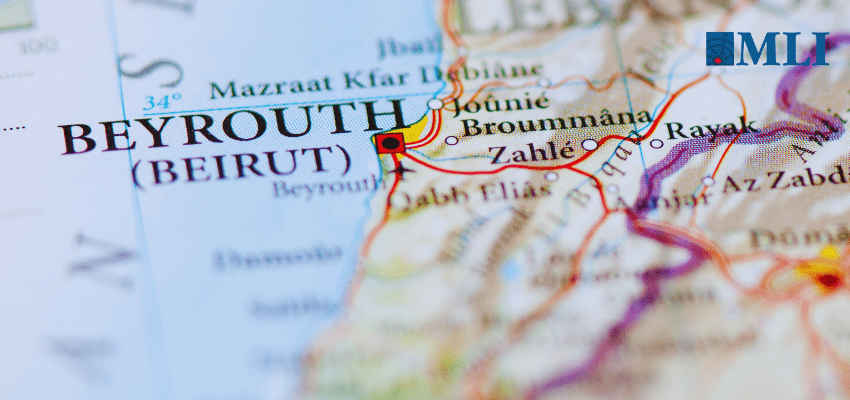By J.L. Granatstein, August 20, 2024
Canada is preparing to evacuate Canadian citizens from Lebanon in case the ongoing conflict between Israel and Hezbollah, the well-armed, Iranian-backed terrorist organization, escalates into a full-blown war. Most of Lebanon’s southern border towns have been evacuated as have the kibbutzim and villages of Israel’s north. There are estimates that as many as 75,000 Canadian citizens may be living in or visiting Lebanon.
There is a precedent for an evacuation of Canadians from Lebanon. In 2006, Hezbollah and Israel engaged in a 34-day war that killed some 1,300 Lebanese and 165 Israelis and displaced 1.5 million residents of the two countries. The war ended after Lebanon, Israel, and Hezbollah accepted United Nations Security Council resolution 1701, which called for, among other things, an immediate ceasefire, and the withdrawal of all combatants from southern Lebanon.
There were as many as 50,000 Canadians in Lebanon at the time and Canada moved to get as many of its citizens it could reach – and who wanted to be evacuated – out to Cyprus or Turkey and on to Canada. Some 14,000 were evacuated by air or by sea at a cost that was later reported to be $94 million.
Almost no one asked in 2006 what were the obligations of the Canadian government to citizens living abroad. Many of these citizens had lived in Lebanon for decades, their only link to Canada being their passport. Consider Rasha Solti, who wrote in the Globe and Mail on July 22, 2006: “I hold a Canadian passport, I was born in Toronto when my parents were students there. I have never gone back. I left at age 2.” Solti’s passport was her escape route to Canada if she ever needed it. Did Canada owe her and others like her anything? And while there are no hard numbers, as many as 7,000 of the evacuees reportedly returned to Lebanon after the cessation of fighting.
Obviously, the government has some responsibility to assist Canadians caught up in a conflict. But what about citizens of convenience – those who renew their Canadian passports every five or ten years without visiting, let alone living, in Canada? What duty does Canada have to help Canadian passport holders who have not resided in or paid taxes to Canada for decades – if ever?
The Standing Senate Committee on Foreign Affairs and International Trade studied the 2006 evacuation and its report in May 2007 touched on this issue. A Department of Foreign Affairs official responsible for consular affairs told the Committee that “Until further notice, within the framework of the consular service, a Canadian is a Canadian; the rule is very clear. However, you are right, the debate has been launched and the discussion will take place.”
Well, no real public discussion took place. There were, however, conversations within the federal government, and the nation’s Citizenship Act has been amended several times since 2006. But there are still no residency requirements to remain a citizen. Should there be?
An amendment in 2009 instituted the “first generation limitation” that restricted the scope of those eligible for Canadian citizenship for the future. Citizenship by descent would henceforth be limited to one generation born outside Canada. This law was subsequently deemed unconstitutional by the Ontario Superior Court in December 2023, and the government now has a bill before Parliament that will grant citizenship to eligible foreign nationals whose parent(s) have a substantial connection to Canada and are impacted by the first generation limitation.
In other words – unless the courts subsequently define “a substantial connection” very narrowly – Canadian citizenship can be passed on for generations to those living abroad.
This summer Ottawa is again preparing to evacuate Canadians from Lebanon. The government has bolstered its embassy staff in Beirut and deployed Canadian Armed Forces personnel to Cyprus where they are working with allied nations to coordinate evacuation planning. Prime Minister Justin Trudeau, Global Affairs Canada, and the Canadian Embassy in Beirut have all urged Canadians to leave at once. It’s unknown how many people have taken this advice, but clearly Canada is preparing for a major evacuation if the fighting escalates.
Is it not long past time for Canada to consider what rights are appropriate for those who choose to live abroad? Many permanent residents living outside Canada, as in Lebanon, hold dual citizenship. Should they require genuine ties in or to our country to retain their citizenship and their passports?
Before 1977, Canadians who acquired another nation’s citizenship, except by marriage, lost their Canadian status. Until 1973, Canada required those who wanted its citizenship to renounce their former allegiance. A 1993 parliamentary committee questioned the meaning of loyalty when people held dual citizenship, and it suggested that this devalued the meaning of Canadian citizenship. The committee, in fact, recommended that a Canadian who voluntarily acquired another citizenship should cease to be a Canadian. What the courts might to say to efforts to implement such measures today is unknown.
Still, the Foreign Affairs official in 2006 was correct: A Canadian is a Canadian. But perhaps there is another way to limit the use of our passports as a public convenience. In the United States, all Americans, no matter where they live or how many passports they carry, must file an income tax return as a fundamental continuing obligation of citizenship. Essentially, the US says that those who want to enjoy the benefits of citizenship must help to pay the costs of running the government, and those who don’t want to pay must renounce their American citizenship. This applies to Americans living in Canada.
Washington’s regulation is both reasonable and right. Holding a US passport carries certain obligations. We need to find ways to impose similar obligations on Canadian passport holders living abroad.
In Yann Martel’s famous phrase, Canada is the greatest hotel on earth. He meant that as praise, but to many it has come to imply that they can enjoy the benefits of this country without sharing in the duties and obligations of citizenship. In other words, you can check in, enjoy the facilities, and then check out without paying the bill.
It is too late to interfere with the pending evacuation from Lebanon. But now it is time to consider what rights citizens living abroad in perpetuity can have. It’s time to fully examine whether dual (or triple or multiple) passport holders can remain Canadian citizens. Time at last for a hard look at what Canadian citizenship means in the 21st century.
J.L. Granatstein taught Canadian history for 30 years and was director and CEO of the Canadian War Museum. He sits on the Macdonald-Laurier Institute’s Research Advisory Board.







